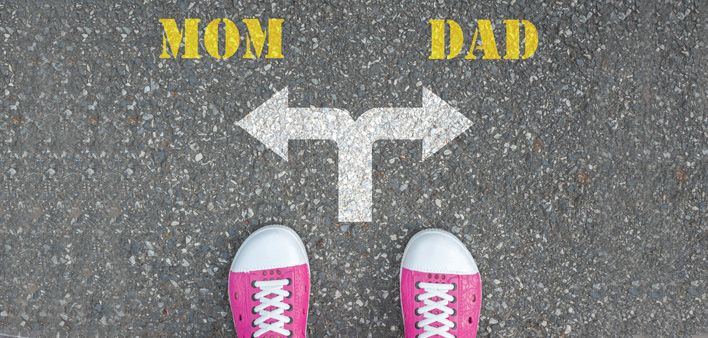Relationships—Children First

By Shelley Galasso Bonanno, MA, LLP
When parents divorce, their child custody plans are supposed to place the “best interests of the child” first, but amidst the strong feelings of bitterness and resentment that often accompany divorce, this can be a difficult process to navigate. From agreeing to holidays, to coordination of schedules, considering the best interest of children in custody isn’t always easy. So, what is the best custody arrangement for children after divorce?
While deciding on a custody arrangement that is best for children, it is important to remember that what children want, and what studies show children need in virtually all families, is consistent access to both parents. Most psychologists recognize the importance of keeping both parents actively involved in their children’s lives.
Most importantly, it is not always so much about the specific custody arrangement that is most important, but reduced conflict between parents, that children benefit from most. All custody plans work best when both parents are cooperative, respectful, and manage their emotions, leaving their children out of the middle. Parenting can often be hard, and co-parenting adds another layer of complexity. Prevent as many conflicts as possible with your ex by employing open communication, but when disagreements do arise, consider if the conflict is truly worth fighting over.
Never place children in the middle of adult battles or disparage the other parent in the presence of children. It is important to remind yourself: what’s best for my children in the long run? And the answer seems to be, having a good relationship with both parents throughout their lives.
Keeping children’s best interests first and foremost can be tricky during a divorce when emotions run high. Children, like adults, experience a lot of change and uncertainty during a divorce. Allowing children to express feelings and confusions about the divorce and custody arrangements can help them feel a sense of control in the midst of all that change. You can help children grieve their loss and adjust to new circumstances by helping them express their emotions. The challenge is to do this while resisting the opportunity to reduce criticism of the other parent.
Encourage children to share their feelings and really listen to them. They may be feeling sadness, loss or frustration. It’s normal for children to have difficulty expressing their feelings, but parents can help by being sensitive, noticing their children’s moods and encouraging them to talk about all their feelings. If children aren’t able to share their honest feelings, they will have a harder time working through them. And while some children go through divorce with relatively few problems, others have a more difficult time. While it’s normal for kids to feel a wide range of difficult emotions, if children remain overwhelmed, seeking a professional can help both children and adults sort through their feelings.
Whether you agree upon a shared or sole custody arrangement, make the best decision for your children’s well-being by working together on a co-parenting schedule that focuses on consistent contact with both parents, leaves children out of adult conflict, and focuses on helping children work through their all of their feelings, including those of loss and grief.
 A lifelong resident of Macomb County, Shelley Galasso Bonanno is a practicing limited licensed psychologist who completed her Master’s degree at Wayne State University in 1987. She has a breadth of experience in working with adults, children, families, and couples. In addition to working in private practice, Ms. Bonanno performs consultative services for State and forensic agencies. She performs custody and parenting time evaluations and is a court approved mediator. Her writings have appeared in various online and print publications. An advocate for mental he alth, you can follow Ms. Bonanno on Twitter @shelleybonanno.
A lifelong resident of Macomb County, Shelley Galasso Bonanno is a practicing limited licensed psychologist who completed her Master’s degree at Wayne State University in 1987. She has a breadth of experience in working with adults, children, families, and couples. In addition to working in private practice, Ms. Bonanno performs consultative services for State and forensic agencies. She performs custody and parenting time evaluations and is a court approved mediator. Her writings have appeared in various online and print publications. An advocate for mental he alth, you can follow Ms. Bonanno on Twitter @shelleybonanno.

